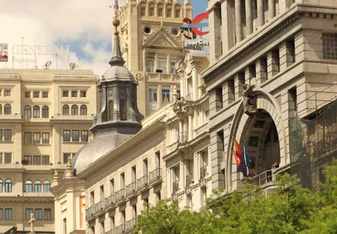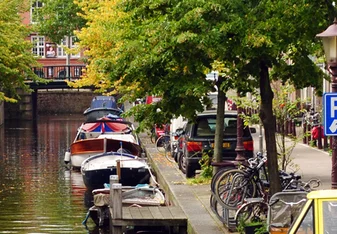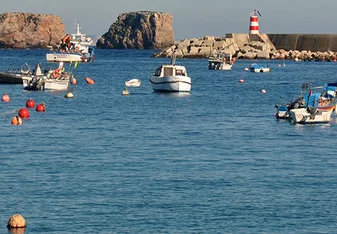Gap Year Programs in Spain
About
Spanish culture is widely known for its unique styles of art and music. The Spanish created Flamenco music and wonderfully unflattering portraits of royalty. The painter's El Greco and Francisco de Goya emerged in the 18th century as Spain's most prolific artists. From Spain’s Gothic cathedrals to its breathtaking beaches, Spain is perfect for a gap year.
Types of Programs
Volunteering
While Spain is a westernized first-world country, there is still a large need for volunteers. Conservation is needed to protect locals species and to keep Spain’s beaches clean for the future. Volunteers often live with a host family and are provided several weeks of Spanish lessons. Volunteers are placed throughout Spain. Programs range from protecting Spain’s pristine coasts to helping out at inner-city orphanages. Volunteering in Spain provides a great opportunity to explore one of the most popular destinations in Europe while also learning about Spanish culture and traditions. If you choose to Volunteer, you must be open-minded and willing to adapt to a new environment. Spain provides both a fascinating and fun place to volunteer abroad!
Internships
Spain is one of the most popular destinations in Europe, especially Barcelona. As one of the most traveled destinations on earth, especially for students, Spain’s metropolitan areas offer a variety of internship opportunities that are tailored to meet your professional goals. While the Spanish economy is struggling at the moment, Spain’s diverse number of businesses means that you will have many placement opportunities with numerous companies. Whether you're interested in healthcare, business, non-profit management, or anything in between you will have no shortage of opportunities to choose from in Spain!
Planning Your Trip
Culture and Etiquette in Spain
Traditionally, Spain’s social structure emphasizes the family before all else, including both the nuclear and the extended family. They provide both a social and a financial support network. Over the years, familial networks have become less tight, but in comparison to the United States, men and women are less likely to move away from home until their late 20's.
During Spain’s history, there have been long periods where different religious groups have coexisted, including Muslims, Jews, and Christians. However, Spanish culture is predominantly Catholic, which becomes apparent in every small town, where the most grandiose building is typically the church.
In business, trust is very important. As a result, there are fewer quick networking opportunities since most companies desire long-lasting relationships built on a slow, but necessary trusting bond. It is important that you spend sufficient time letting your business colleagues get to know you. Face-to-face contact is preferred to written or telephone communication. When meeting a new person, always shake hands and refer to them as Don or Dona before using his/her first name.
Health & Safety
The Spanish take Health & Safety very seriously. The Red Cross has a 24-hour emergency ambulance service for anyone in need. Added to this, there is also Chemists (pharmacies) that are open 24 hours a day. If you are sick in Spain, it is not hard for you to receive the aid that your need.
While Spain does not suffer from widespread disease, there are smaller health and safety factors for you to be aware of. Spain is a very hot country, so intense sunburn is prevalent. One should always try and avoid the blazing sun by wearing hats (preferably fashionable ones) and having sunscreen with them at all times. And, on those blisteringly hot days, one should try to buy bottled drinking water if possible. While all of the Food Establishments and Public Swimming Pools are spot checked and regularly examined by the health inspectors, the drinking water in Spain is not held to the same high standards as the water in the countries like The U.S. and England.
While the crime rate is relatively low in Spain, Spain’s economic power has declined in recent years so that rate has risen slightly. The rural towns typically have less crime than the cities, but the cities are still safe and have a strong police force. It’s always best to avoid certain streets at nighttime and to carry mace for your own personal protection.
Gap Year Programs in Spain
Pagination
New Jobs
View the latest job postings on our job board. A great way to earn work experience during your gap year!
Frequently Asked Questions
-
What are the benefits of a gap year in Spain?
A gap year in Spain will provide travelers with an expanded perspective on Spanish culture, including its unique art and music. Additionally, Spain provides the opportunity for Spanish language immersion for those looking to increase their language proficiency. Combine all that with the stunning beaches and Gothic architecture, and it becomes obvious why Spain is a popular gap year destination.
-
How much does it cost to live in Spain for a year?
Spain has a significantly lower cost of living than the US, making it a good option for a budget gap year. With the prevalence of au pair opportunities and English teaching jobs, gappers can lower their expenses even more.
-
What kind of visa do I need for a gap year in Spain?
Spain has different visas depending on your nationality, length of stay, and reason for visiting. Most gappers will travel on either a tourist visa (for stays 90 days or less) or a work visa. Spain has both a specific visa for seasonal work and an au pair visa.
-
What are the most popular types of gap year programs in Spain?
Language immersion courses are common for gappers looking to develop their Spanish speaking skills. Additionally, teaching English and working as an au pair are other popular options for travelers who spend time in Spain. Gappers who are looking to teach English commonly get certified through TEFL courses.


























